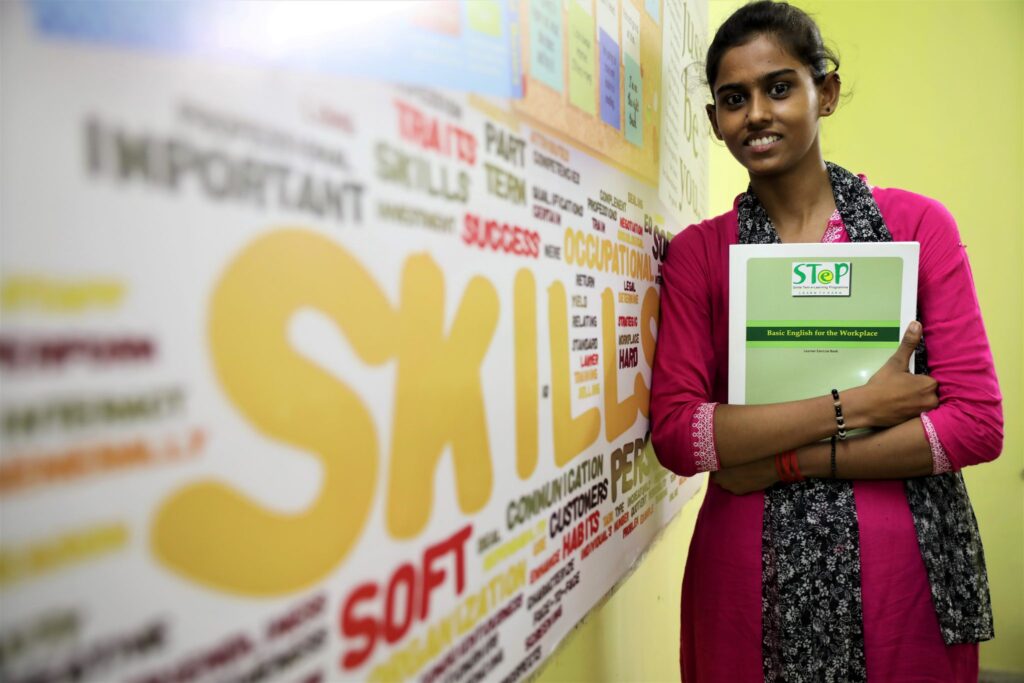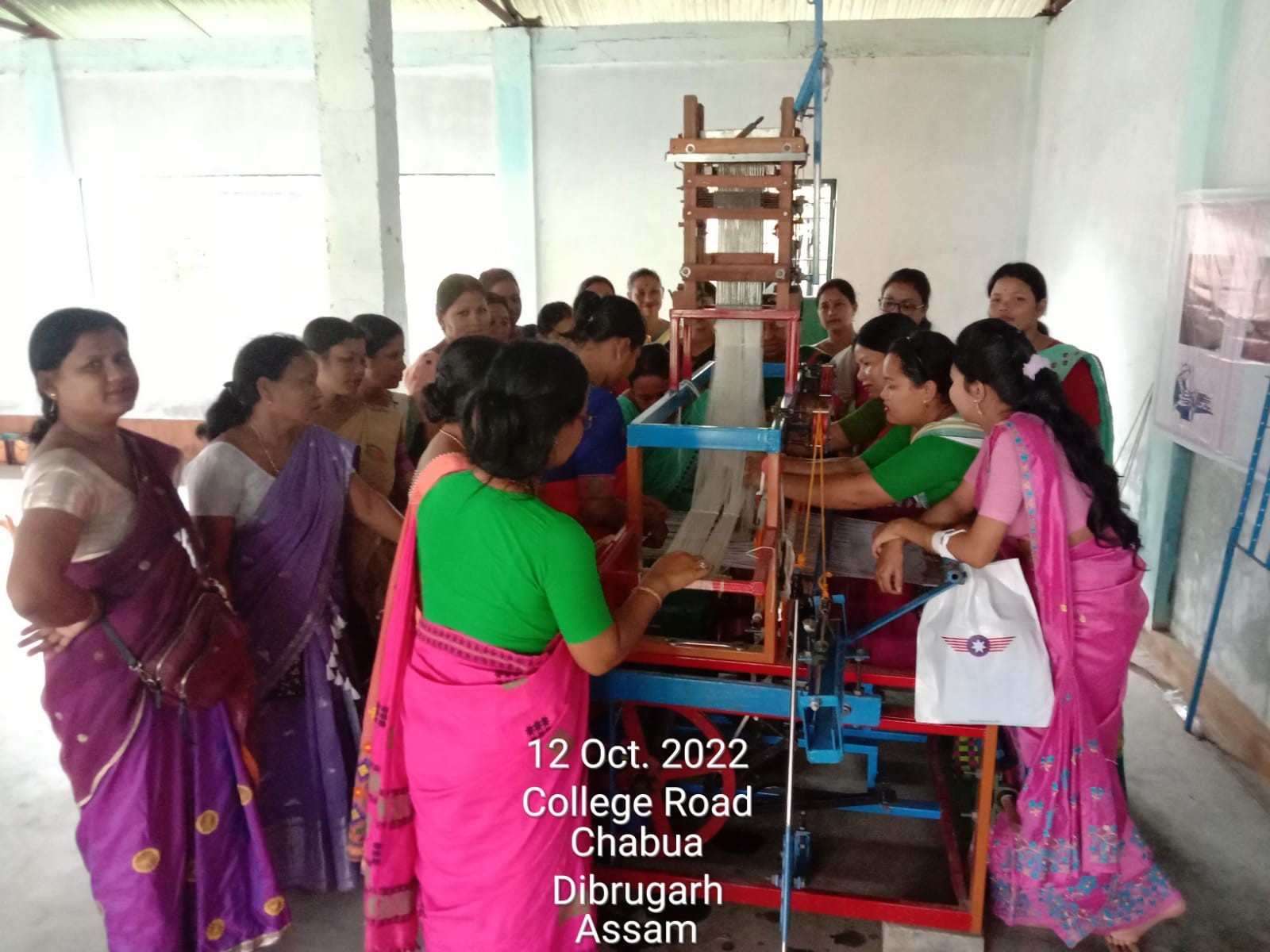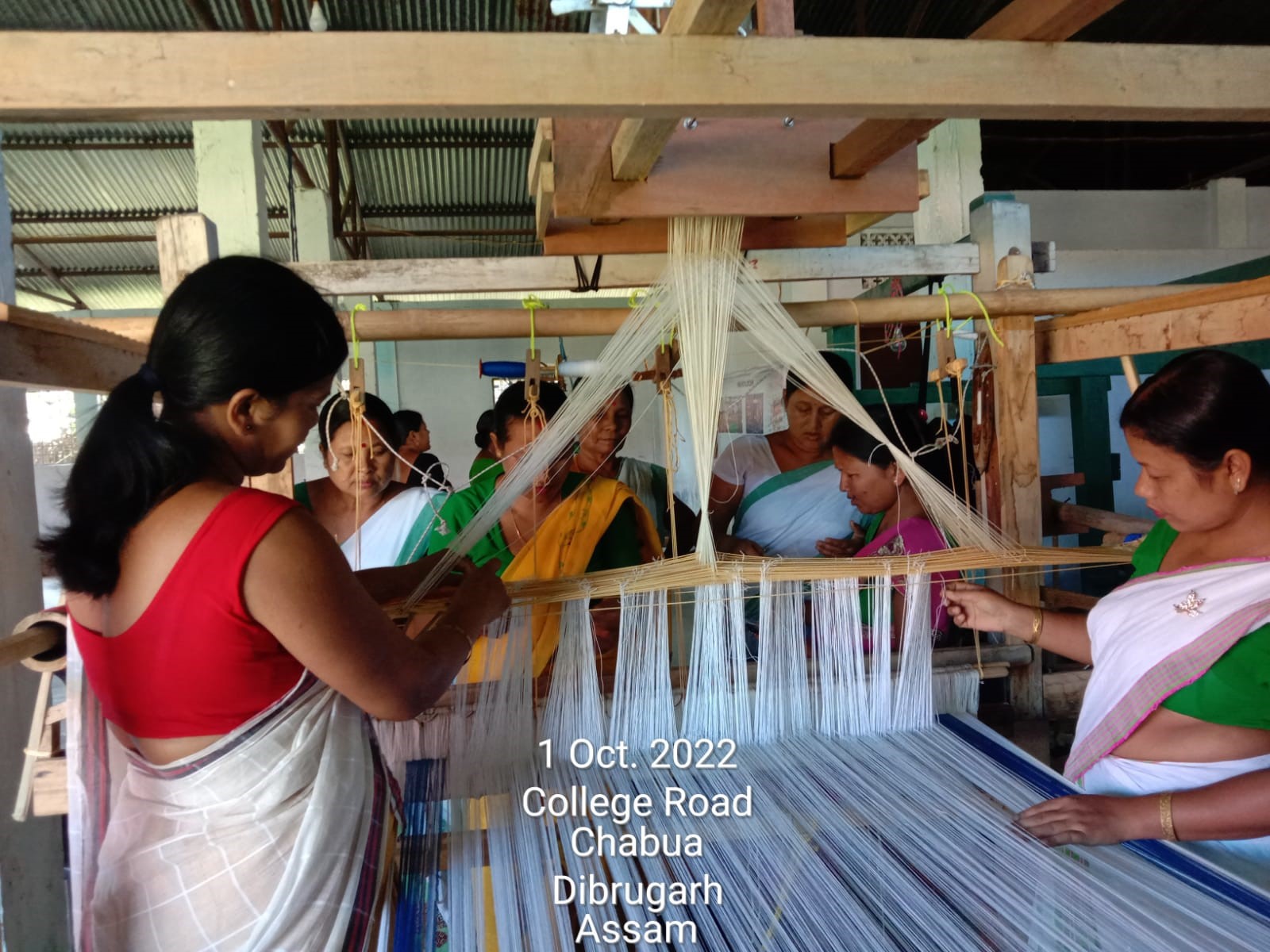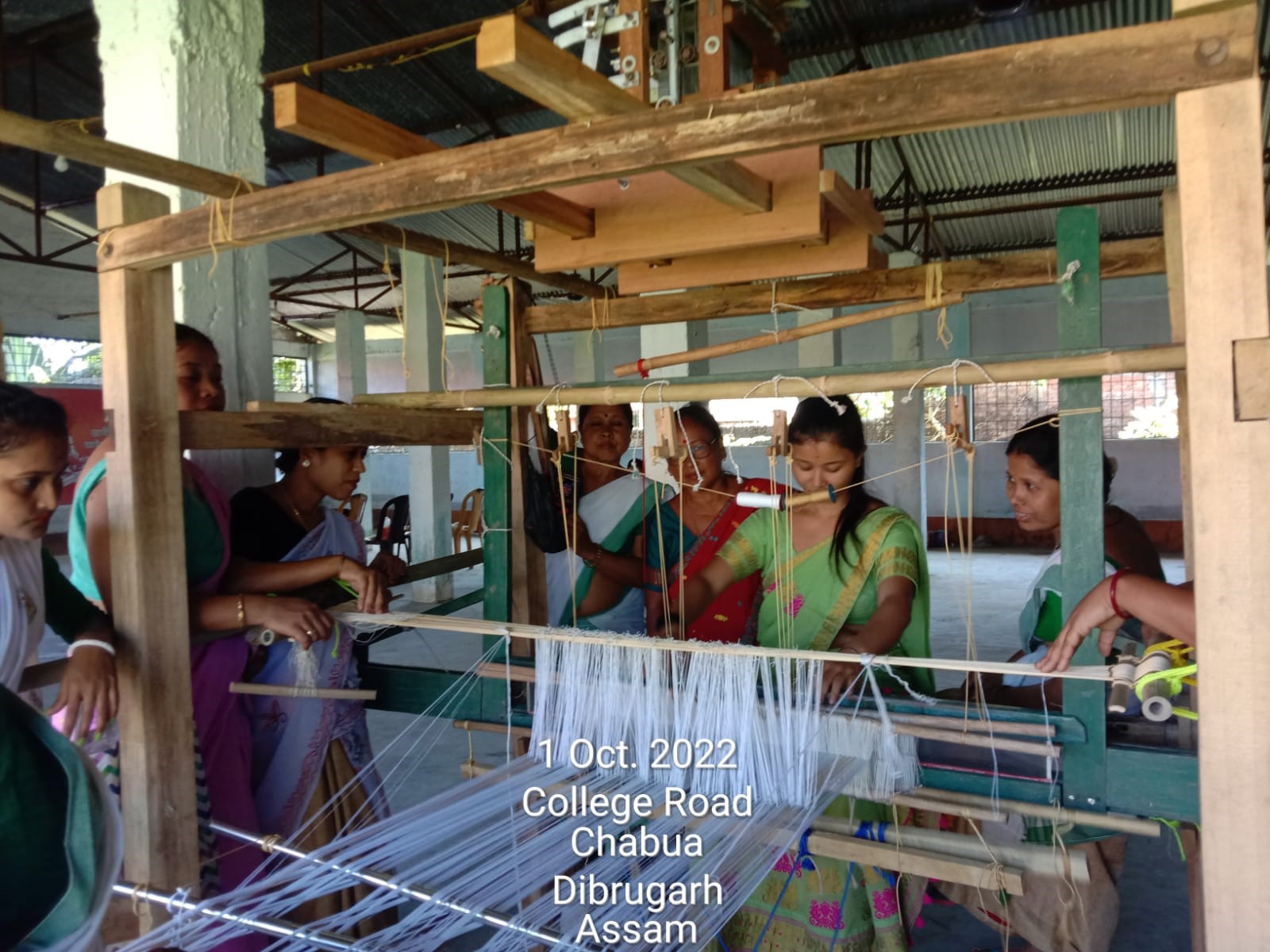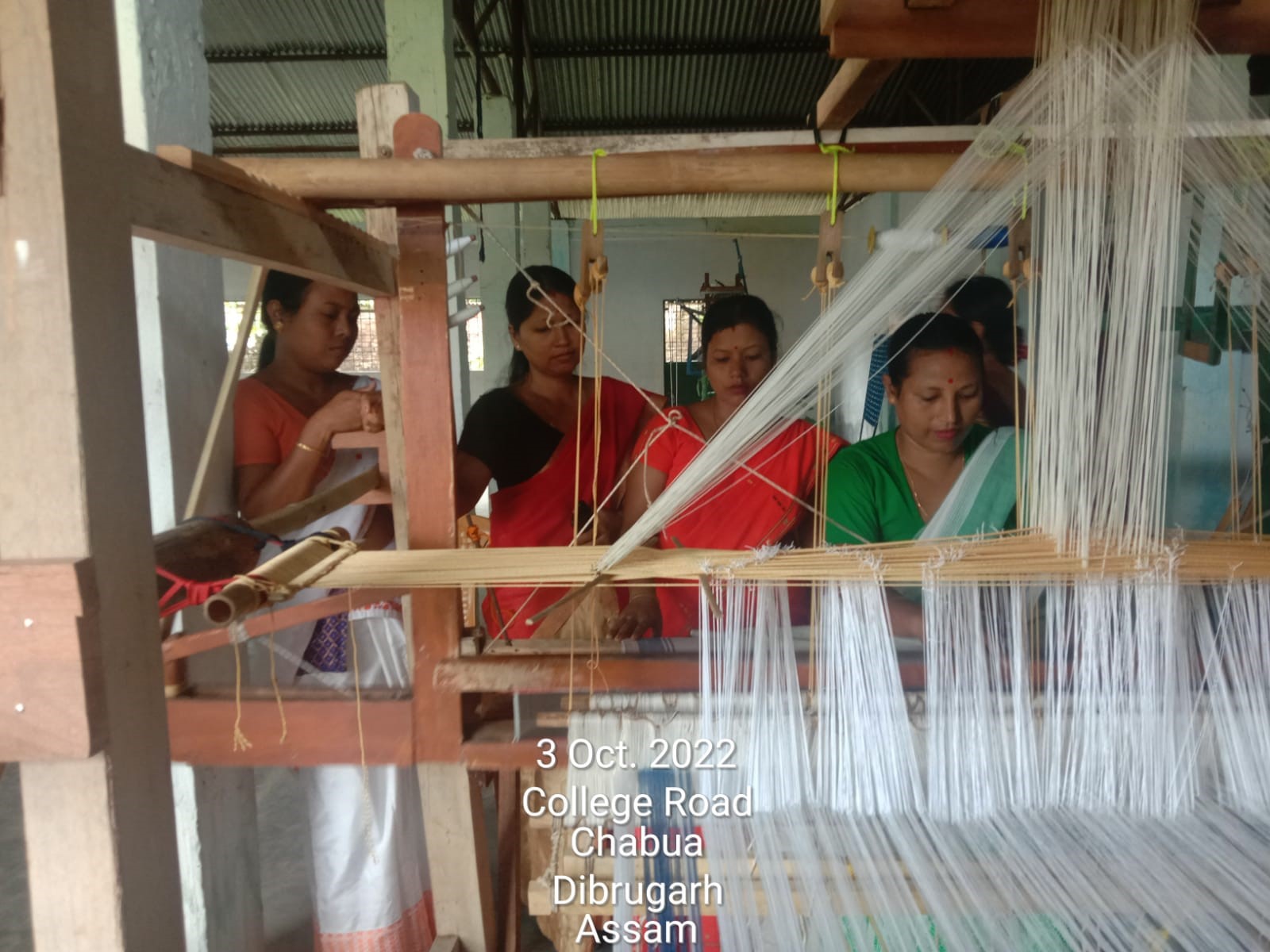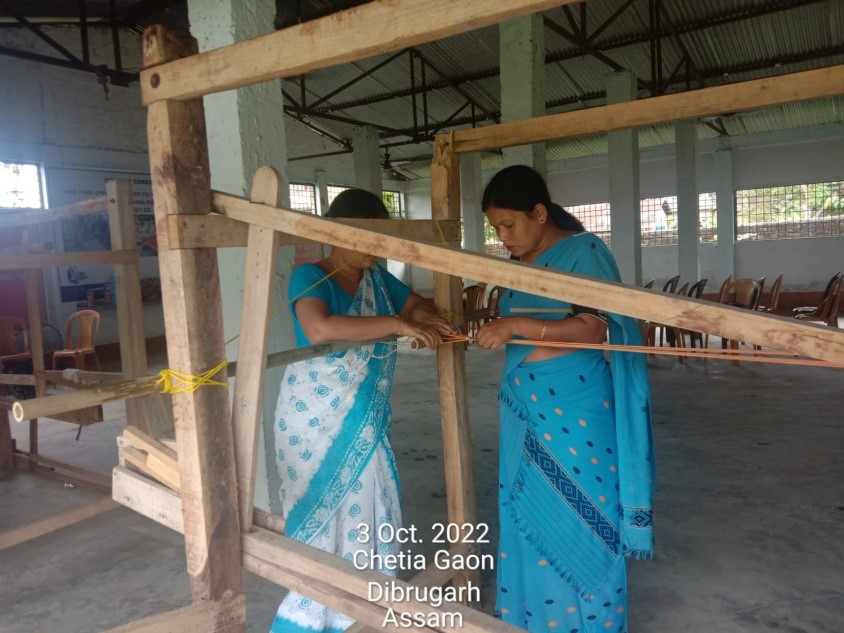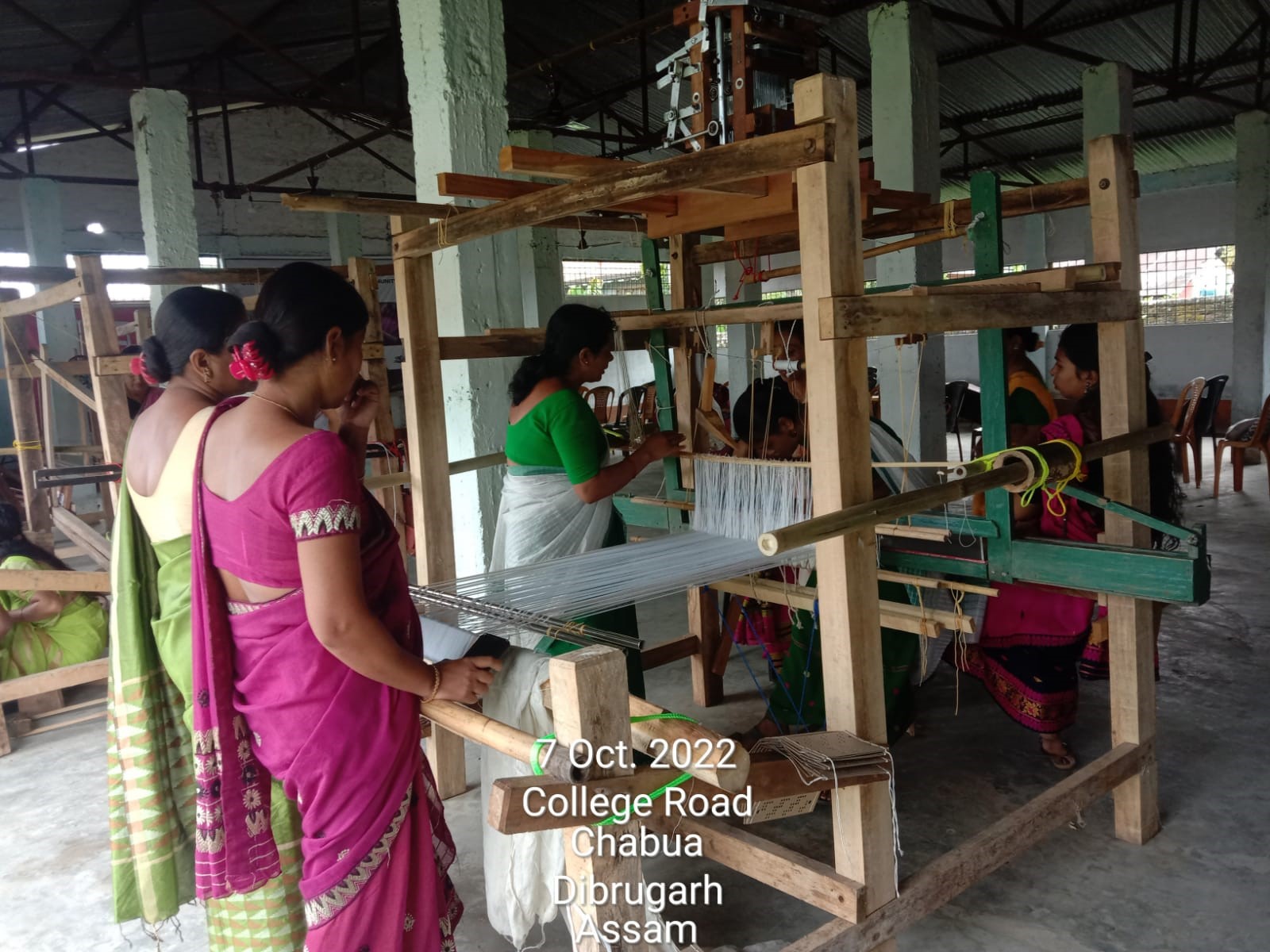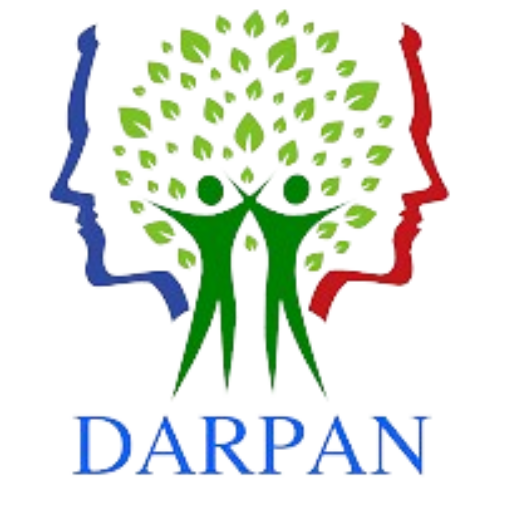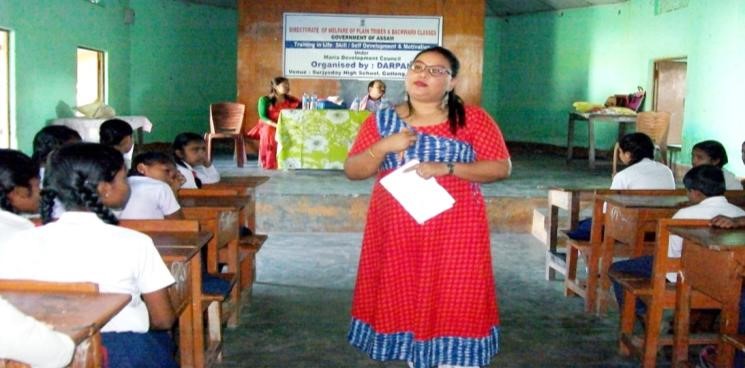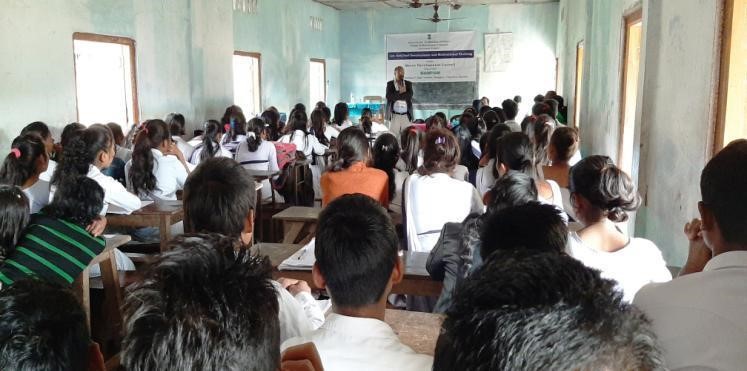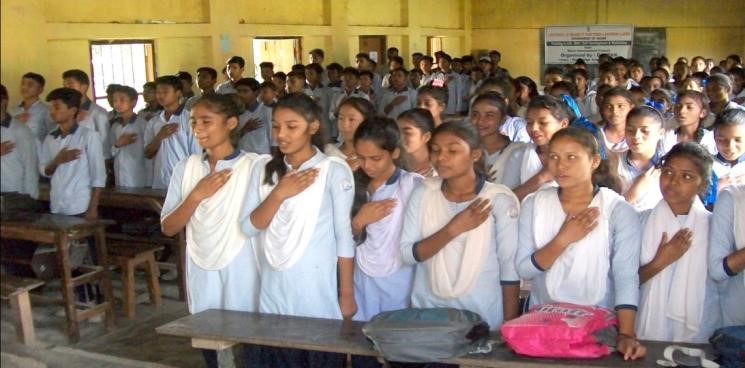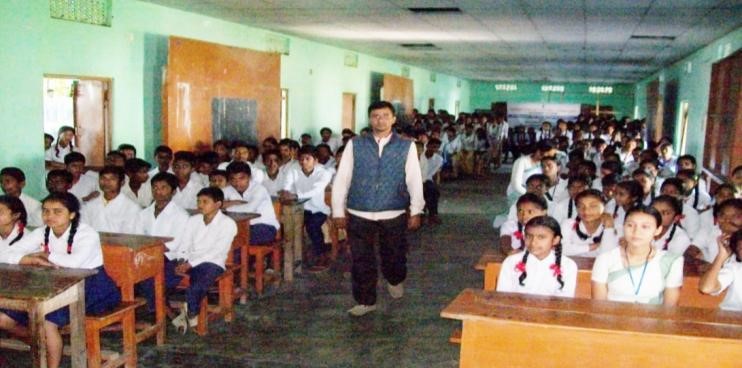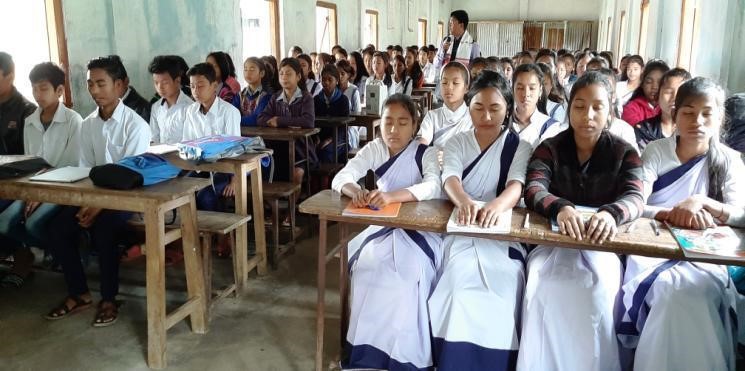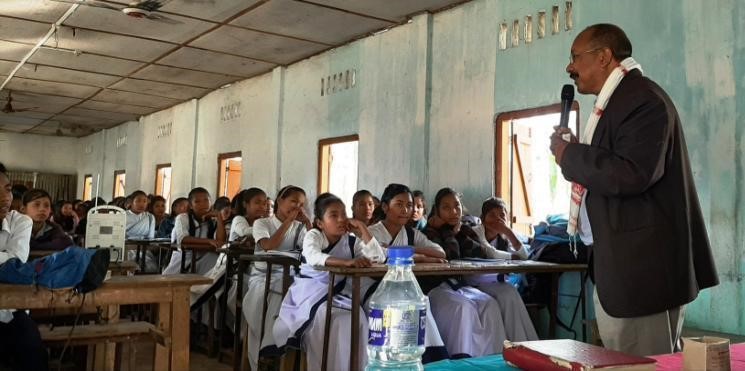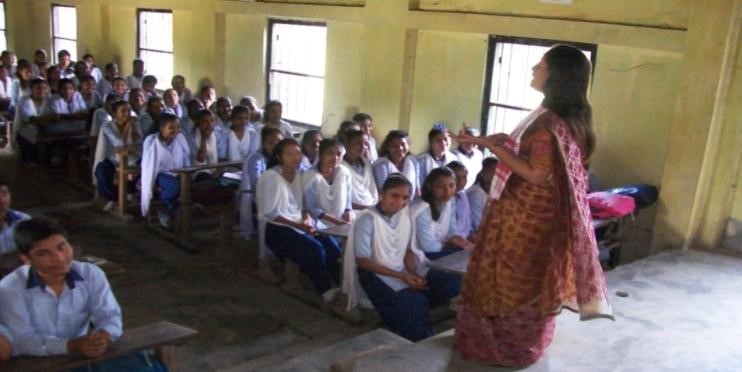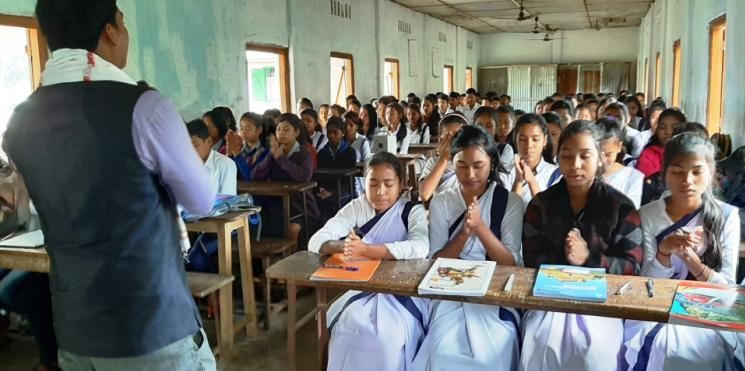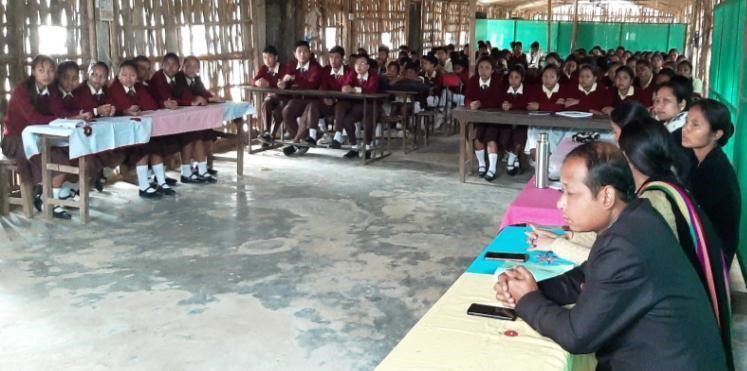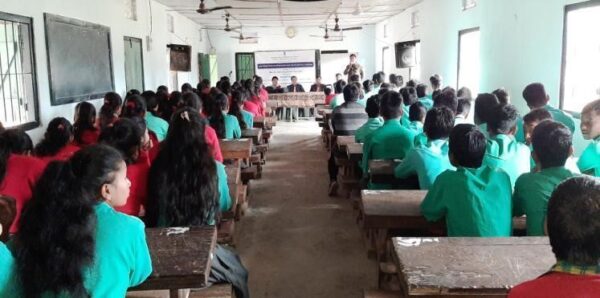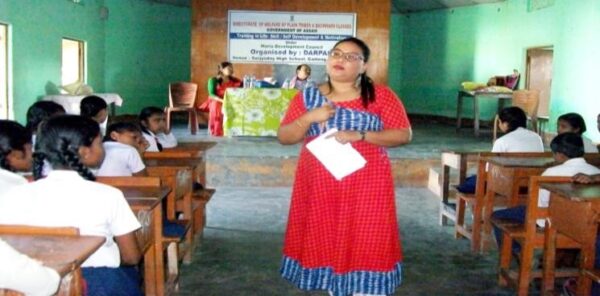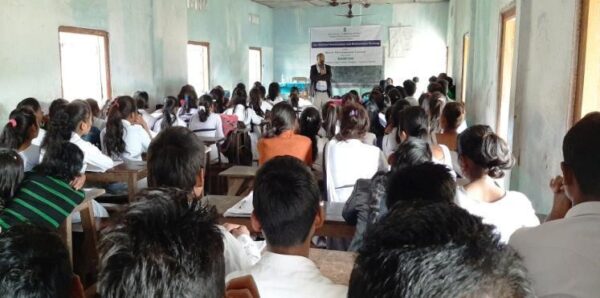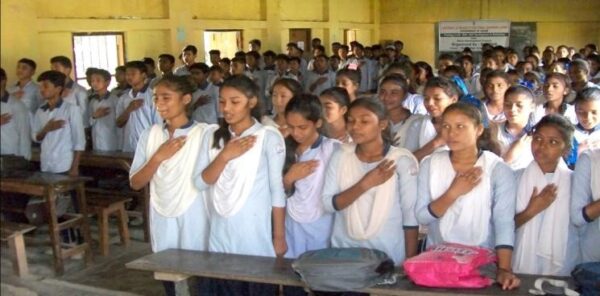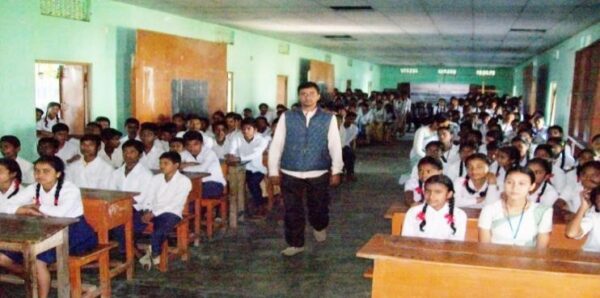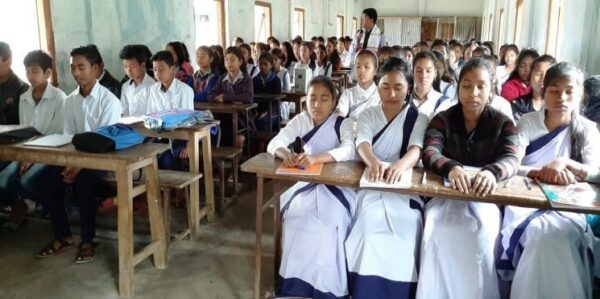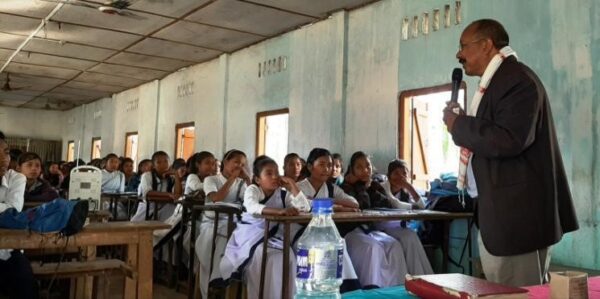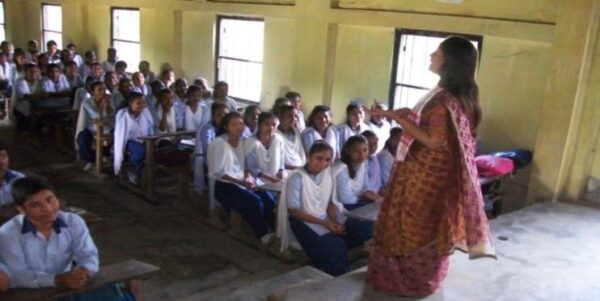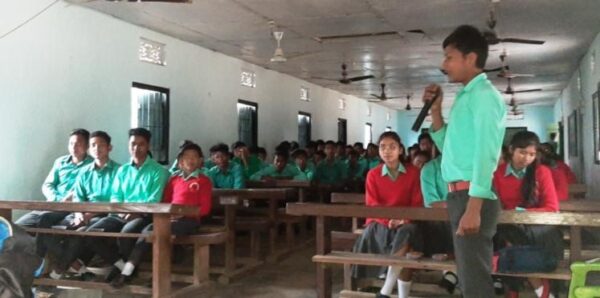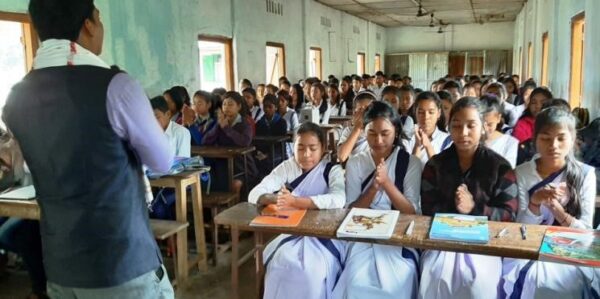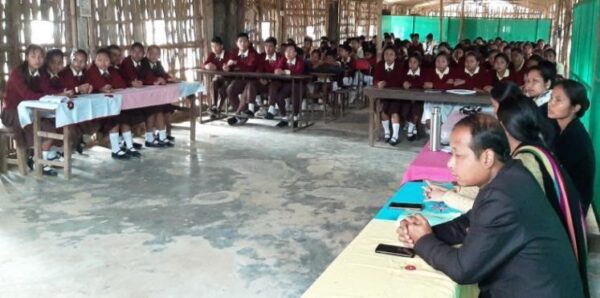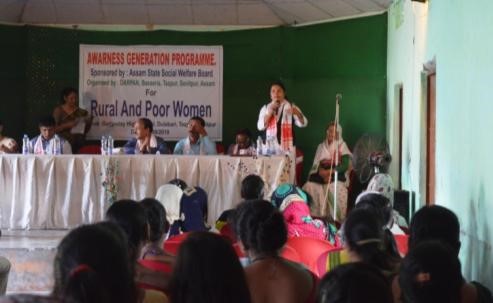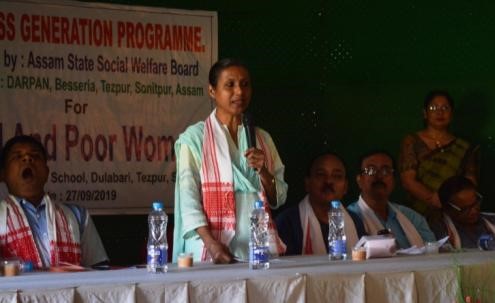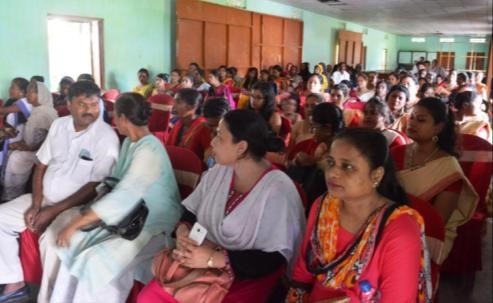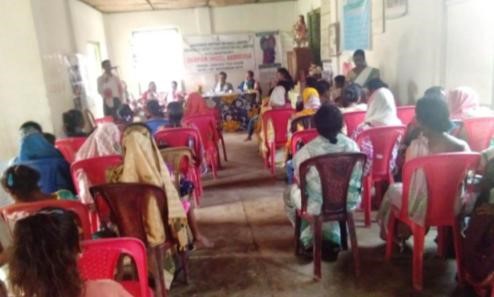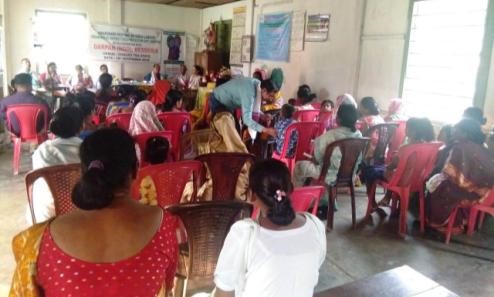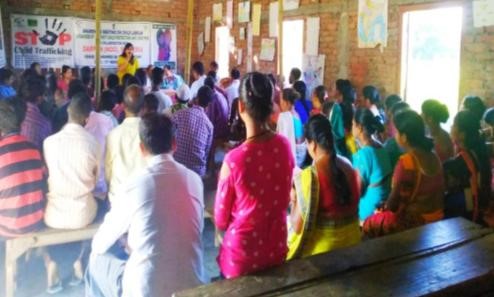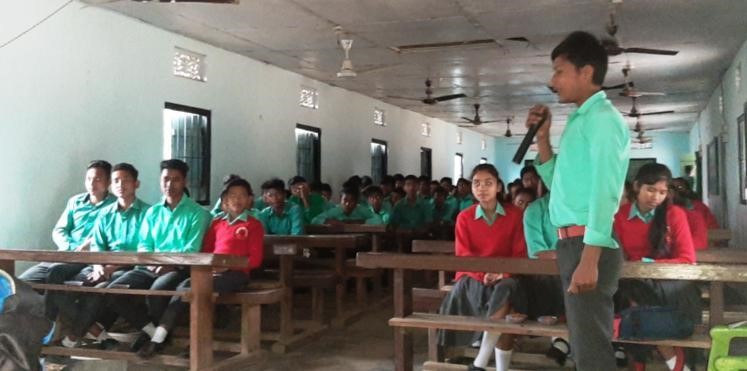OUR WORK
At NGO DARPAN, we are dedicated to creating lasting change in Assam through a series of impactful projects and initiatives. Our work is a testament to the power of collaboration, as we partner with government bodies and private organizations to address pressing social issues and drive community development.
Details of our Projects

Darpan is empanelled with the Paints and Coatings Skill Council (PCSC) and has successfully conducted RPL training for 800 painters in Assam. We have mobilized beneficiaries from remote areas where the professional painters do not have a recognition of their skills. Through the RPL training, we have been able to give them the certification from PCSC under National Skill Development Council (NSDC). The RPL was conducted from November to December, 2020. All COVID-19 guidelines were strictly followed.
Recognition of Prior Learning (RPL) is a skill certification component to enable Indian youth to take on industry relevant skill certification which will help them to secure a better livelihood. Individuals with prior learning experience or skills can register themselves and get assessed and certified under the RPL component of PMKVY. It focuses mainly on individuals engaged in unregulated sectors.
RPL has 12 hours of orientation. To address knowledge gaps, PIAs offer bridge courses to candidates along with the 12-hour orientation domain skills, soft skills and entrepreneurship tips and familiarization with the assessment process.
Centers
Beneficiaries
Timeline of the Project
Project Started- Novemebr,2020
Project Ended- December,2020




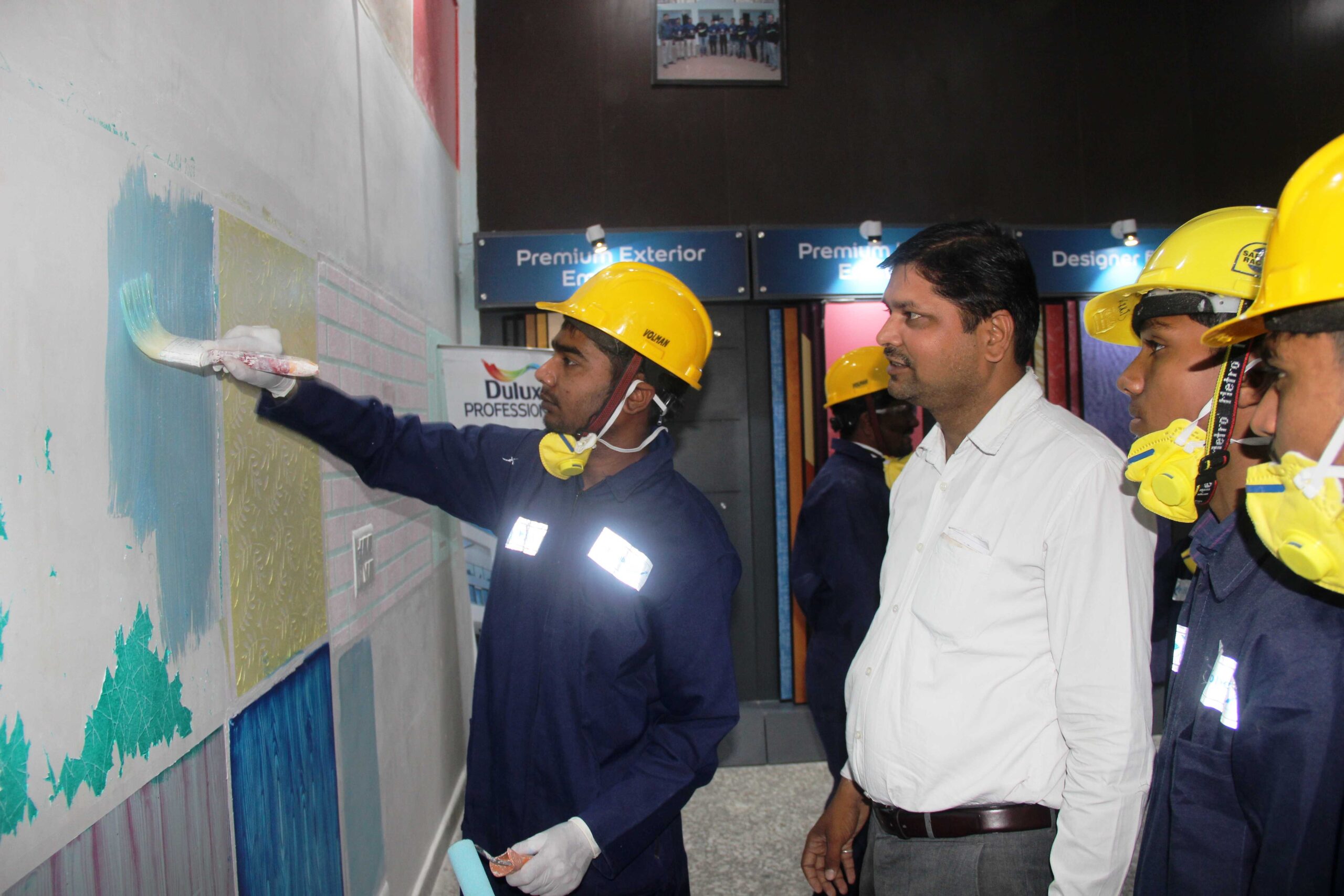
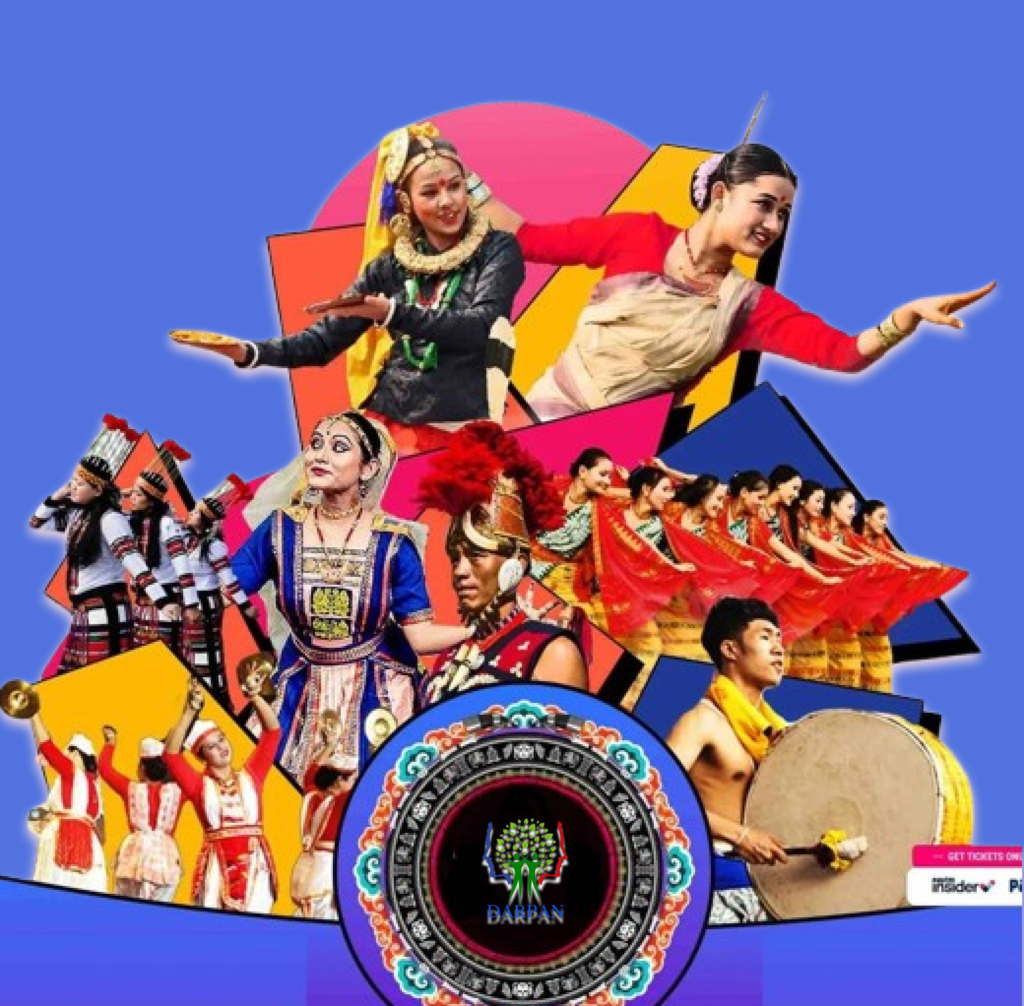
Cultural activities under Darpan
Culture enriches communities by fostering social cohesion, enhancing well-being, and celebrating shared identities through storytelling, festivals, and events. Darpan champions this by partnering with development councils to organize cultural workshops and programs. These initiatives build social capital, boost community engagement, and promote inclusivity, ultimately strengthening the fabric of society and improving overall quality of life.
Centers
Beneficiaries
1. Chutiafolk cultural workshop in various districts of Assam
The Folk Cultural workshop for each location was organized over a period of seven days. A cultural programme was conducted on the last day of the workshop. On the first day, an inauguration ceremony was held which started with an invocation prayer. It was attended by dignitaries and guests from prominent walks of life. The workshop started with an introduction and interactive session of a brief history of the community and an exploration of its cultures and traditions and their importance in the present context. After that, the day ended with a workshop on Bihu dance. The second day started with a workshop on Chutia traditional songs.
The workshops were conducted by professional artists with much experience in the cultural area. This made the students understand the importance of learning about the culture and its subtler identifiers. On the final day, a cultural programme was held and all the learning of the workshop culminated on stage performance on day. Various guests were invited to attend the programme and people thronged the venue to see the cultural programmes. Prominent social workers were invited as chief guests at each venue.




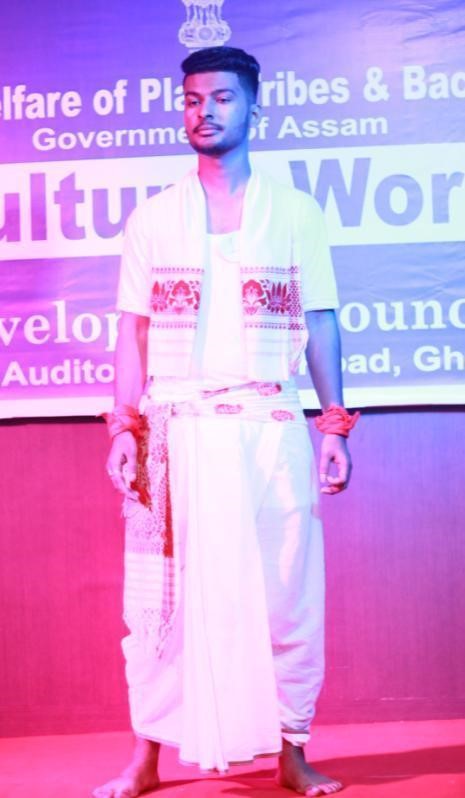
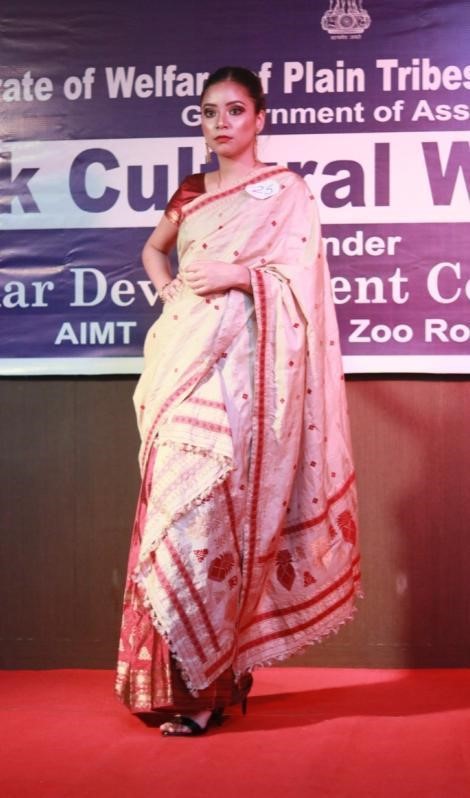
2. Kumar Community Traditional Attire and Fashion Grooming
Clothes are a means of expressing our individuality. When lots of people express their individualities, diversity arises; a diversity we all know keeps life alive for us. Dressing in traditional garb is a way to show a genuine cultural appreciation for human diversity. By donning traditional clothing, we can express our humility and our interest in preserving and understanding the ways of the past. Wearing these garments helps us show our affinity for the local and indigenous people, and they allow both parties to collectively understand that our similarities outweigh our differences. The participants were taught about the history of the attires along with traditional accessories. There is nothing that cannot be stylized. Therefore, the participants learned how they can wear such traditional dresses and still remain fashionable.
During the first two days, the participants were taught about the different types of traditional costumes of Assam. After a thorough understanding, they were taught how such dresses can be glamorized for various occasions. Since the sixth day, the participants started preparing for the fashion show ‘A Walk for Unity’.
3. Tea & Ex-Tea Tribesfolk cultural workshop/Festival in various districts of Assam
The tea tribes and ex tea tribes are an ethnolinguistic minority, the population of the community is primarily rural in nature and estimated to be around 6.5 million (65 lakhs) or 18% of Assam’s total population. They live in almost every district of Assam but their density varies according to the number of tea plantations in different regions of Assam. The strength is more in Upper Assam and Central Assam than Lower Assam. They generally use Nagpuri or Sadri with Assamese influence as lingua franca among themselves along with the use of other languages like Sora, Sambalpuri, Santali, Kurukh and Mundari.
The most popular dance of the tea tribes is Jhumur and it is imperative that all cultural enthusiasts of the community know about the dance. Hence, the participants, through the rigorous workshop were able to get training on Jhumur from an expert on this dance form.
The issue of human trafficking is rampant in the tea garden areas; owing to lack of awareness and that the people can be easily lured with the promise of employment because of the poor economic condition. Hence, the participants were taught about the crime and how to keep one safe, save others and not become a victim. The participants also learned about the necessities of health and hygiene so that many health problems that arise from lack of sanitation can be kept away. The participants also learned several folk songs that have been prevalent since ages and therefore, they will be able to keep their culture alive. They were also taught modern dance which gives them a scope to participate in mainstream dance competitions.
The occasion was also graced by Jatin Chandra Malakar, Research Assistant, Directorate of Welfare of Plain Tribes and Backward Classes, Govt. of Assam. He was present even during the workshop days to oversee the smooth functioning of the entire programme.




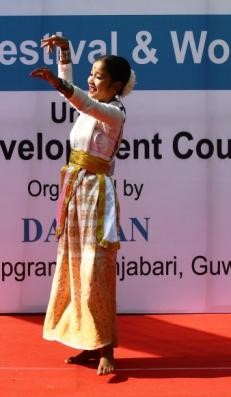
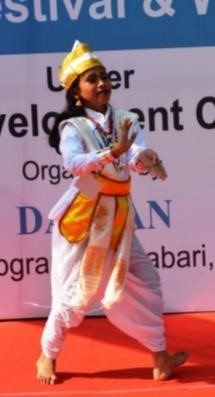
4. Kumar folk cultural workshop/Festival in various districts of Assam:
The Kumar community’s pottery workshop in Assam revitalized traditional craftsmanship and cultural practices. Participants learned pottery skills, including making diyas, vases, and pots, and explored commercial opportunities through ICT. Renowned potter Sibnath Barai provided insights on market expansion and startup formation. The workshop also featured Bihu dance and traditional instruments, enriching participants’ cultural knowledge. The week culminated in a vibrant cultural program, showcasing performances in Bihu, traditional songs, and pottery. Prizes were awarded to standout performers, and certificates were distributed, celebrating the workshop’s role in preserving and promoting Kumar culture. The event, supported by Partha Protim Barkataki from the Directorate of Welfare of Plain Tribes and Backward Classes, marked a significant step towards the cultural proliferation and prosperity of the Kumar community.
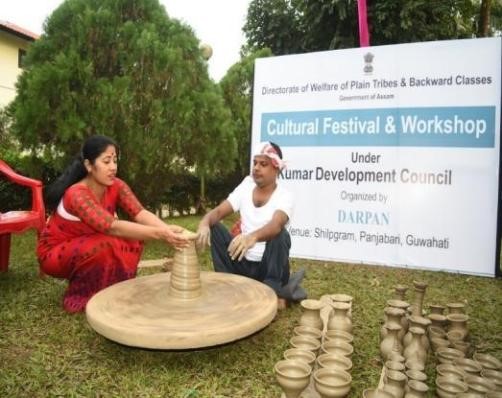
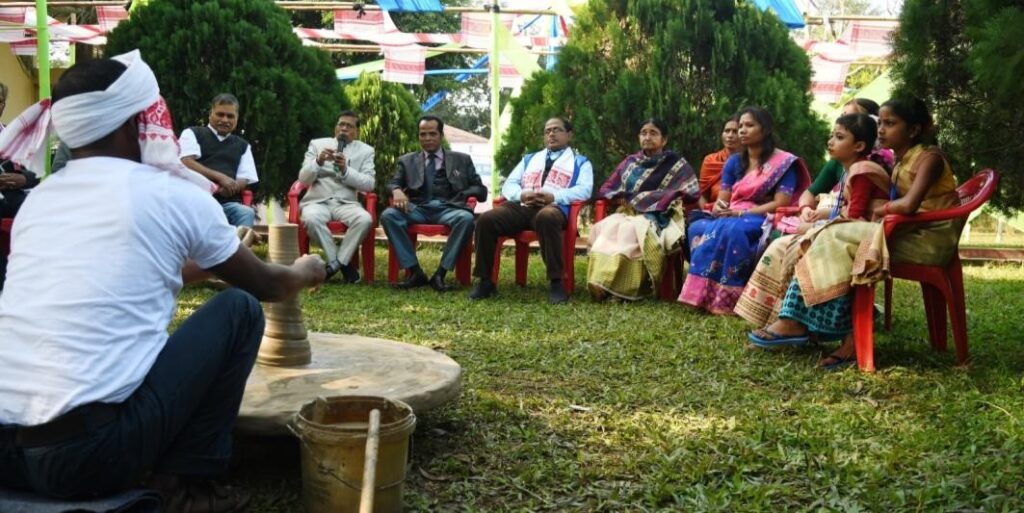

Soft skills complement hard skills to enhance an individual’s relationships, job performance and career prospects. Unlike hard skills, which tend to be specific to a certain type of task or activity, soft skills are broadly applicable. While technical skills may get foot in the door, people skills are what open most of the doors to come. Work ethic, attitude, communication skills, emotional intelligence and a whole host of other personal attributes are the soft skills that are crucial for career success. Hence, the workshop would be crucial in laying the future foundation of the students.
Applicable across work culture.
Keeping in view the utmost necessity of acquiring soft skills, the programme schedule has been so designed to give the trainees a firm understanding of life skills that will benefit them throughput their course of life.
LIFE SKILL & PERSONALITY DEVELOPMENT ACTIVITIES:
Life Skills & Personality development training combines a variety of interpersonal, communication & social skills that help people interact effectively with others. This would enable individuals to work well with others to accomplish their goals. Soft skills is a term often associated with a person’s Emotional Intelligence Quotient, the cluster of personality traits, social graces, communication, language, personal habits, friendliness, managing people, leadership, etc. that characterize relationships with other people. Life skills, also known as people skills, complement hard skills to enhance an individual’s relationships. Unlike hard skills, which comprise a person’s technical skill set and ability to perform certain functional tasks, soft skills are interpersonal and broadly applicable across work culture.
The Main tasks of the Soft Skills module are to develop and enhance:
- Critical and reflective thinking;
- Personality Development
- Self-management and self-awareness skills;
- Communication skills, including interpretation and use of feedback;
- Team working and peer support strategies.
Centers
Beneficiaries


The increasing number of voices calling for justice and equality in Assam is equally bad and good news for the cause because it reveals the darker side of our society that such crimes happen against women and such inequality is still prevalent. On the other hand, the fact that the women are coming out to report and protest against it shows an increase in the awareness of their rights and the assertions. However, there is still a long way to go and awareness programmes need to be taken up from time to time to keep reminding the women that it is an ongoing issue and needs to be worked on constantly.
The first session was Healthy Domestic Life where the women were explained the importance of safe sex, birth control and menstrual hygiene. The second session was a workshop on Legal Routes. Most of the women in the villages are ignorant of these recourses and are also afraid of the legal rigmaroles. The workshop will teach them what legal sections are available for different kind of complaints and what the punishment entails with special focus on specific acts. The third session was workshop on Government Schemes. There is a need of mass awareness generation about these schemes for ensuring that the benefits are acquired by the women in need. Hence, they were given details of the scheme and how to acquire the benefits and what documents may be required. Different exercises were also conducted at the seminar.
AWARENESS PROGRAMME ON WOMEN EMPOWERMENT
Assam has a largely rural agrarian economy, which is characterized by high rate of work participation of women. Though Female Work Participation Rates (FWPR) is high, as it is subsistence farming, women do not benefit economically, though they share a disproportionate share of the work burden. Women enjoy better status in the state as compared to women in India in terms of decision-making power at the household level while the situation is reverse in case of their financial autonomy and sexual violence. Inter district disparity is rampant in the state. Districts like Kamrup and Tinsukiain spite of having high per capita DDP have not been able to transform the development effort to bridge the gender gap. Districts with high literacy rates are having high proportion of female main and marginal workers and low proportion of non-workers. Higher the literacy higher is the female workforce participation rate. Female enrolment rate is below fifty per cent despiteuniversalization of primary education and provision of mid-day meal schemes. Although Government has undertaken several steps the situation has remained gloomy mainly because the educated women are not forward looking and cherish the baseless age-old customs. There is a need to create awareness towards achieving the desired goal of women empowerment in the state.
Centers
Beneficiaries
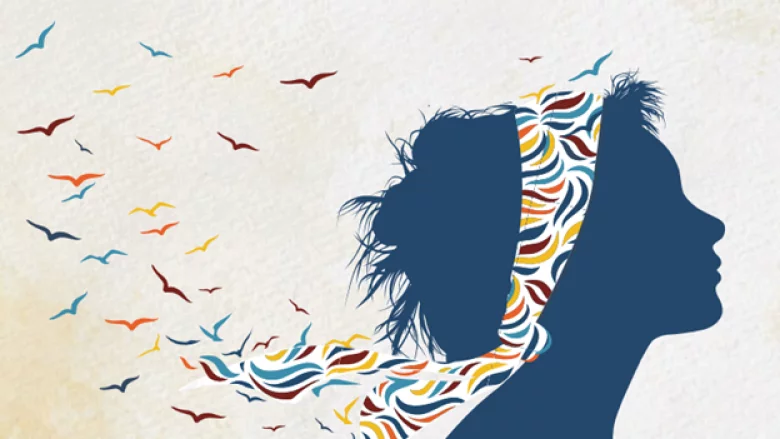
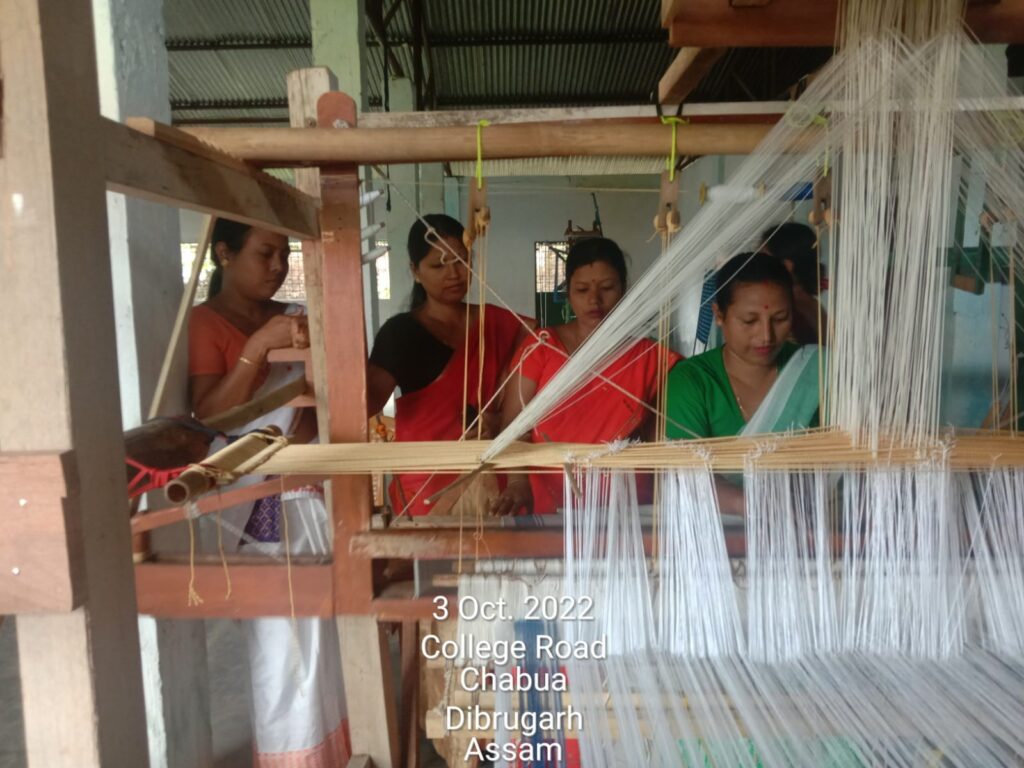
Existing eco system: The biggest problem being faced by the sector is that the handloom weavers, being unorganized and limited to a very casual and household activity sort of approach, face problems in finding the right price for their products as they often are exploited by middle men and evolving market trends. Besides, the sector is facing stiff competition from the power loom sector which is flooding the market with cheap cloths, making hand weaving a less remunerative profession. The result, particularly in Assam is that hand weaving has been growing very slowly as a profession. Therefore, there is a need to bridge the gap through infrastructure development, skill up-gradation, design and product development as per market demand through a comprehensive market-oriented approach, so that the weavers get a vibrant market and better remuneration for their products. Only through these adaptations, livelihood generation for women can be done in handloom & textile sector.
In order to eliminate these major threats, we must look for options where weavers can work as a team in an organized manner. Moreover, in order to compete with cheaper power loom products, the sector needs to be more professional. One can hardly find a weaver in rural Assam, who actually knows the number of hours she spent in the loom in order to weave a particular product. This attitude has to change. There is ample scope of product portfolio diversification. Good quality products always find good markets
LIVELIHOOD GENERATION PROGRAMME FOR TRIBAL WOMEN
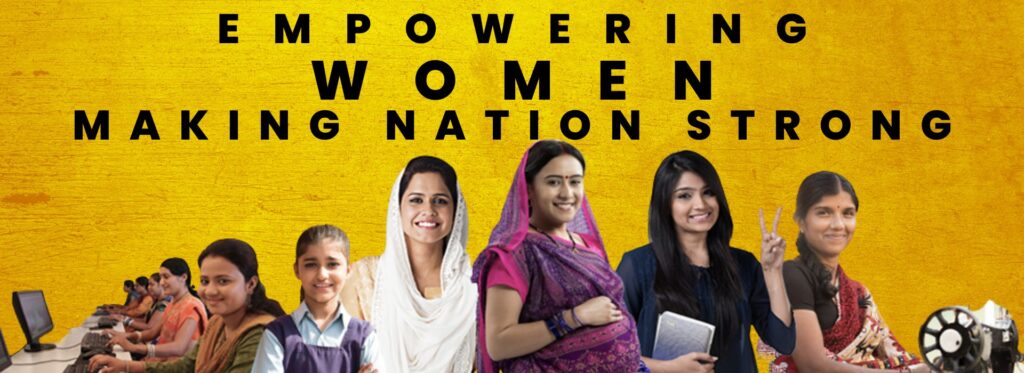
Handloom textile cottage industry plays an important role in the socio-economic life of Assamese people, particularly in rural areas of Assam. It is one of the major ways of earning livelihood next to agriculture and livestock in rural Assam. Assam has a great Textile tradition. Since time immemorial the Assamese women, irrespective of caste and social status, have been weaving the daily requirement of their cloths and apparels and have been taking pride in her works.
Building the capacity of women is an indispensable strategy for enhancing gender equality, and improving their lives. Capacity building programs aim to acknowledge the ability of the women and extend support by serving them with the proper guidance, infrastructure, opportunities, and encouragement that help them achieve their ambitions. Though a large number of women in Assam are involved in weaving activities, they have a limited exposure to modern skill training and technologies. Expanding employment opportunities for women outside the traditional job pool will help overcome the problem of unemployment.
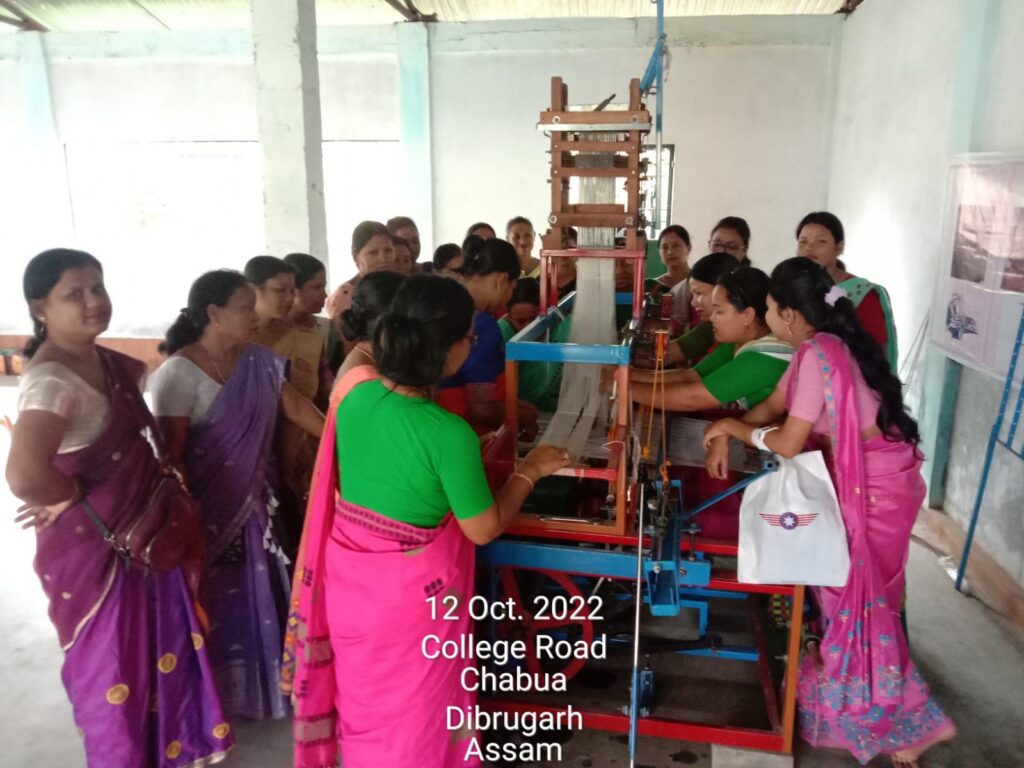
Training Location:
The training was con ducted at 5 districts across Assam. They are- Chabua, Lakhimpur, Sivasagar, Dibrugarh, Tinsukia
About the Course:
The designer needs to create design using imagination or as per motif received from customers or references from designing books on the graph paper manually or on computers using different designing softwares. The created design is then scanned and edited manually or using softwares. After the design is finally made it is given to the card puncher for punching jacquard cards. The weaver needs to be creative, physically active, patient, extrovert, computer savvy as well as needs to have an eye for detail, firm drawing hand, alert mind and good aesthetic sense. The weaver also needs to understand the psychology of the end user.
After completion of training, the beneficiaries will be able to effectively:
- Necessary skills, knowledge and attributes required to develop jacquard design
- Maintain work area, tools and machines
- Gain behavioral skill for team working
- Maintain health, safety and security at work place
- Comply with industry and organizational requirement
- Learn to channelize proper markets
- Have knowledge of market trends and demands
Centers
Beneficiaries
